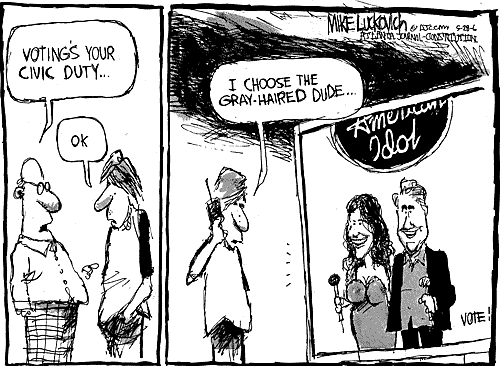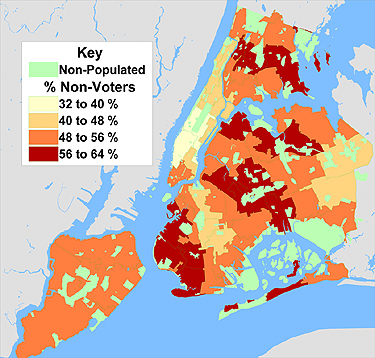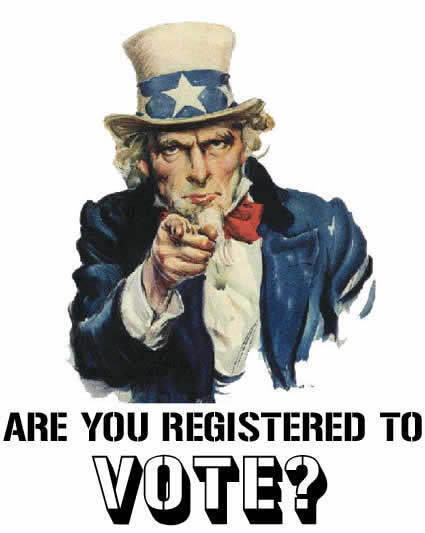Chapter 8: Public Opinion, Participation, and Voting
~SUMMARY~
This chapter is basically about the people and the public. How they vote and how things can affect their opinions. People and their view/opinions about politics are usually influenced from their childhood. This gives them an idea of what party to support or who they vote for. This chapter also talks about how people with higher education and are older tend to vote more. The voting technologies have been changing in order to minimize frauds and corruption. Party identification is the most important element in determining how most Americans vote. Participation is very important in order to make America a good country where everyone wants to live in.
KEY TERMS
Public Opinion:The distribution of invdividual preferences for evaluations of a given issue, candidate, or institution within a specific population
Public opinion is the attutide or belief of the population towards political matters.


FILL IN THE BLANKS to test you chp.8 vocab skills!
1. ____________ remains the most important element in determining how most Americans vote and is an informal affiliation with a political party that most people acquire in childhood.
2. __________ is the distribution across the population of a complex combination of view and attitudes that individuals acquire through various influences from their childhood and on.
3. __________ usually determines public's voting choice because this gives the candidate's background, personality, leadership qualities and other personal qualities.
4. In _________, which is held in years when the president is on the ballot, there is a ___________ which is an election held midway.
5. In order to reduce voter fraud, a system called _________________ limits voting to those who have established eligibility to vote by submitting the proper documents.
6. Citizens who follow public affairs carefully are called, _____________.
7. _____________ is mostly influenced by our families and schools in developing political attitudes, values, and beliefs.
8. In __________, every individual has a known and random chance of being selected.
9. ________ is simply an election in which voters elect officeholders.
10. ______________________ is voting based on what a candidate pledges to do in the future about an issue if elected.
11. __________________is when the rights of voting of a citizen is ignored.
12. The statistical data of a population is called a_________________.
13. _______________are voters that are unaffiliated or undecided of their political party.
14. The _______________allows people to register to vote the same time when they apply or renew their driver's license.
15. When a member of a House of Representative passes away, a_________________is held.
16. If national issues threatens a security or safety of a citizen,the_________________of national issues rises sharply.
17. ______________are intensely courted with person to person interviews, phone calls, mailings before election.
18. The______________granted women the right to vote.
19. ________________is how the voters feel towards the candidate's background, appearance, or personality.
20. When an incumbent is held responsible for certain issues in the past, this is called__________________.
ANS: 1. party identification 2. public opinion 3. candidate appeal 4. presidential elections/midterm elections 5. voter registration 6. attentive public 7. political socialization 8. random sample 9. general election 10. prospective issue voting 11. disenfranchise 12. demographics 13. independent 14. motor voter bill 15. special election 16. salience 17. swing voters 18. nineteenth amendment 19. candidate appeal 20. retrospective issue voting





![[© Bruce Davidson]](http://www.crmvet.org/crmpics/vote.jpg)



















